Twitter Could Lose 17% of its Users if Musk Takes Control
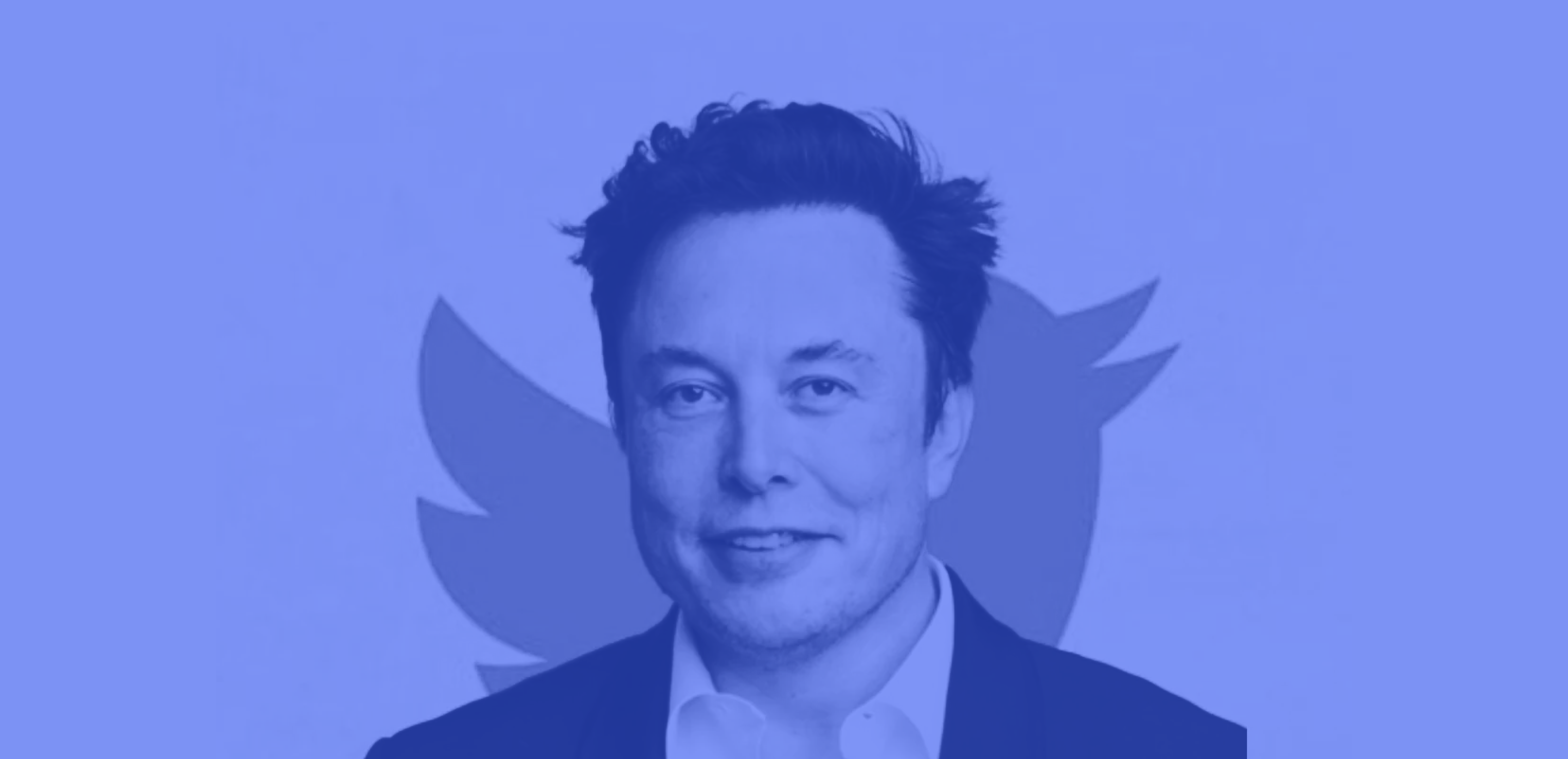
These findings are the result of an Invisibly survey of 500 Americans concerning Elon Musk’s acquisition of Twitter.
Highlights
- 86% of users who don’t currently use Twitter are not more likely to sign up if Elon Musk acquires Twitter.
- Of the people who are worried or angry about Musk acquiring Twitter, the majority of them said they plan to leave the platform if he acquires the company.
- 47% of respondents think Donald Trump will get his account unbanned and will rejoin the platform if Musk takes over.
- The majority of respondents are in support of a Disinformation Governance Board to regulate the spread of disinformation.
The Process
What We Asked
- Do you have a Twitter account?
- If Elon Musk acquires Twitter, will that make you more likely to sign up? (This question only applies to those who don’t have a Twitter account)
- How do you feel about Elon Musk acquiring Twitter?
- Do you plan to leave Twitter if Elon Musk acquires it? (This applies only to people who claimed they were worried or angry about Musk acquiring Twitter.)
- Are you concerned Elon Musk acquiring Twitter will change the way your data is used?
- Do you believe Twitter currently censors free speech?
- Would Musk’s acquisition of Twitter help or hurt the spread of misinformation?
- What features do you hope Elon Musk would add to Twitter?
- Do you think Donald Trump will get his account unbanned from Twitter?
- Have you heard about the Disinformation Governance Board?
- Are you in support of the formation of the Disinformation Governance Board?
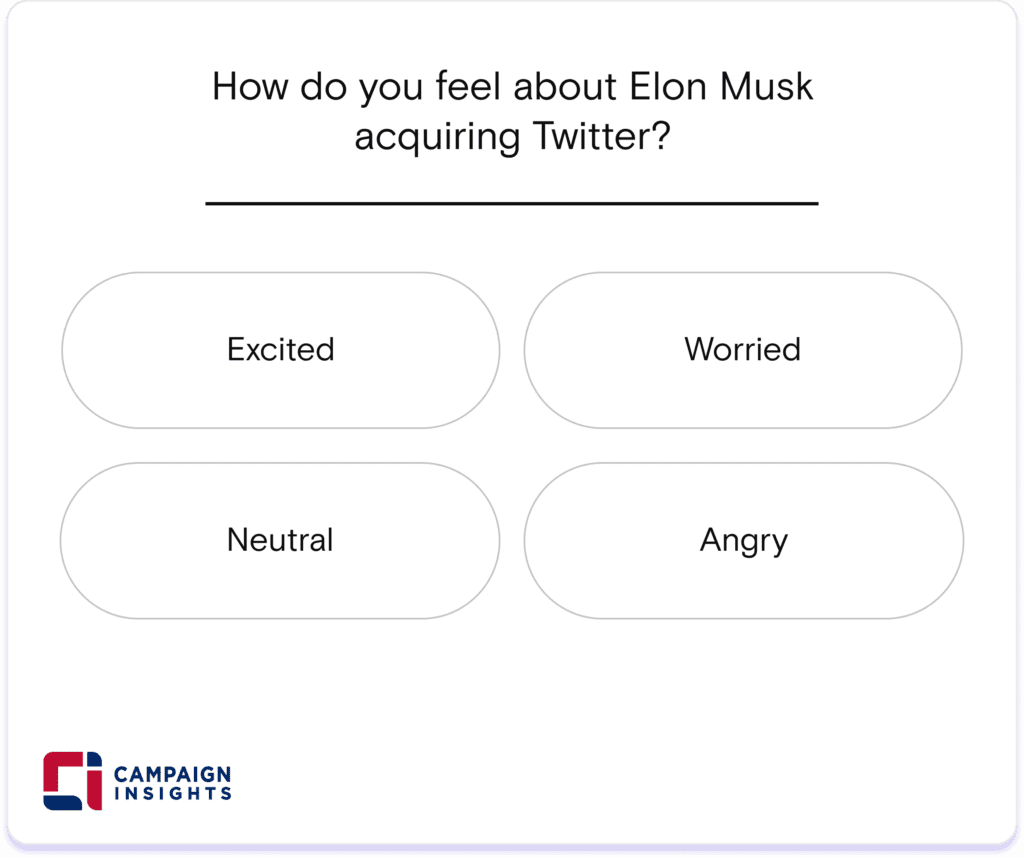
Results
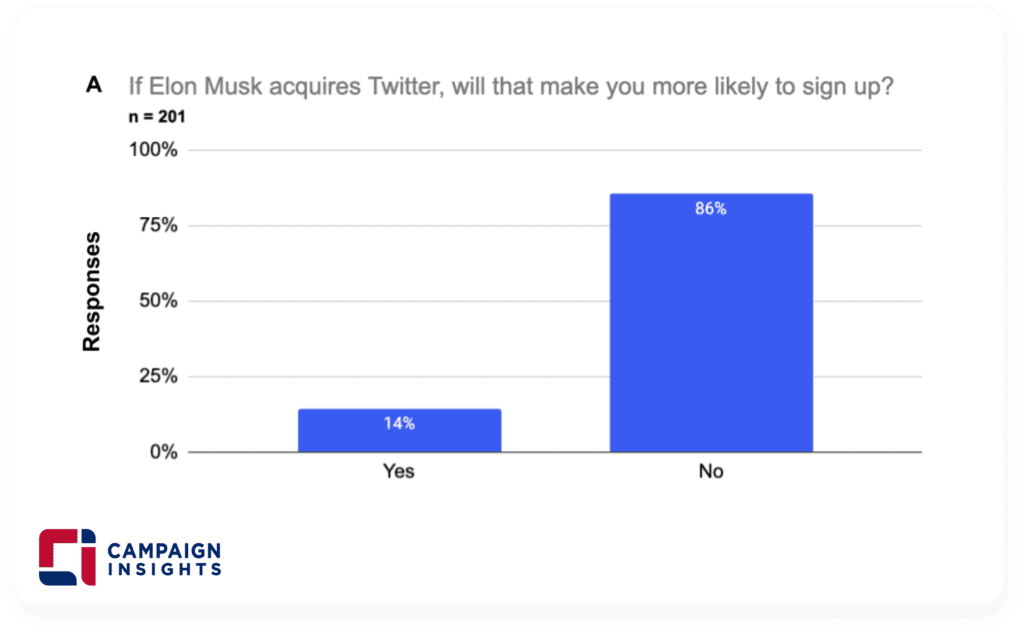
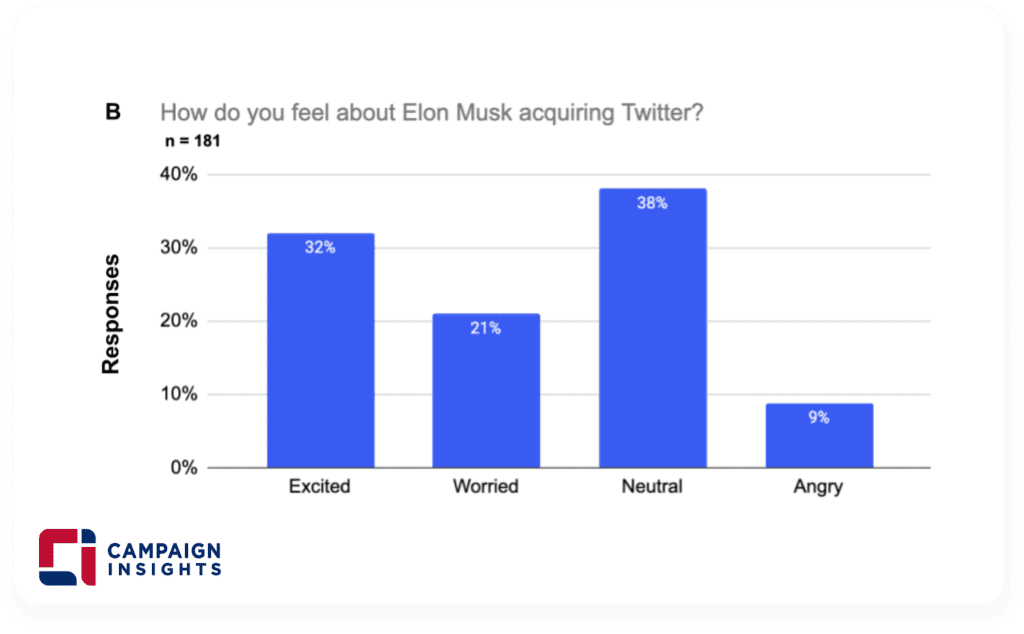
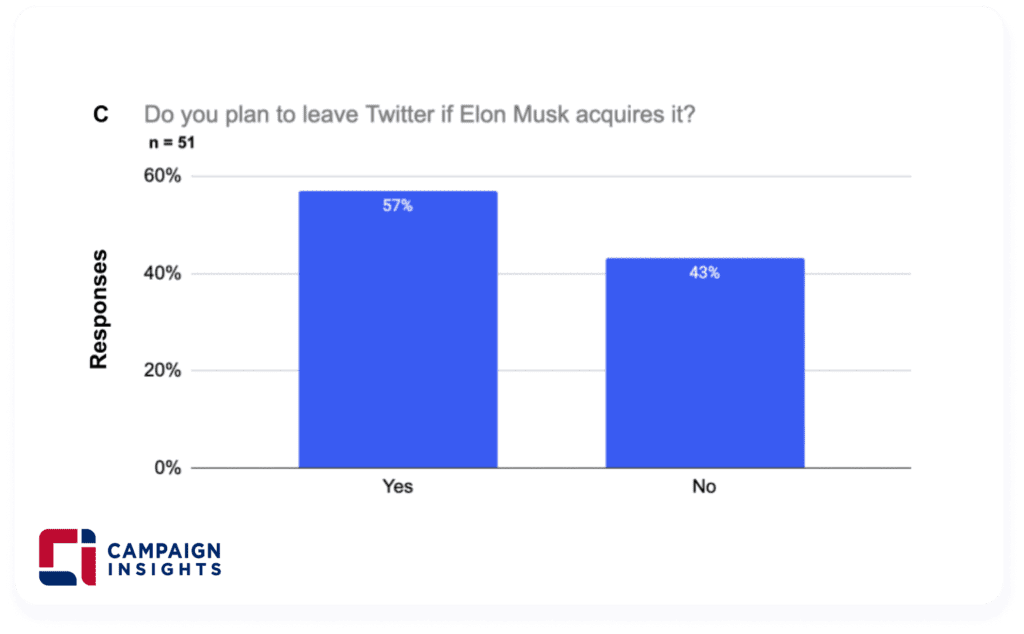
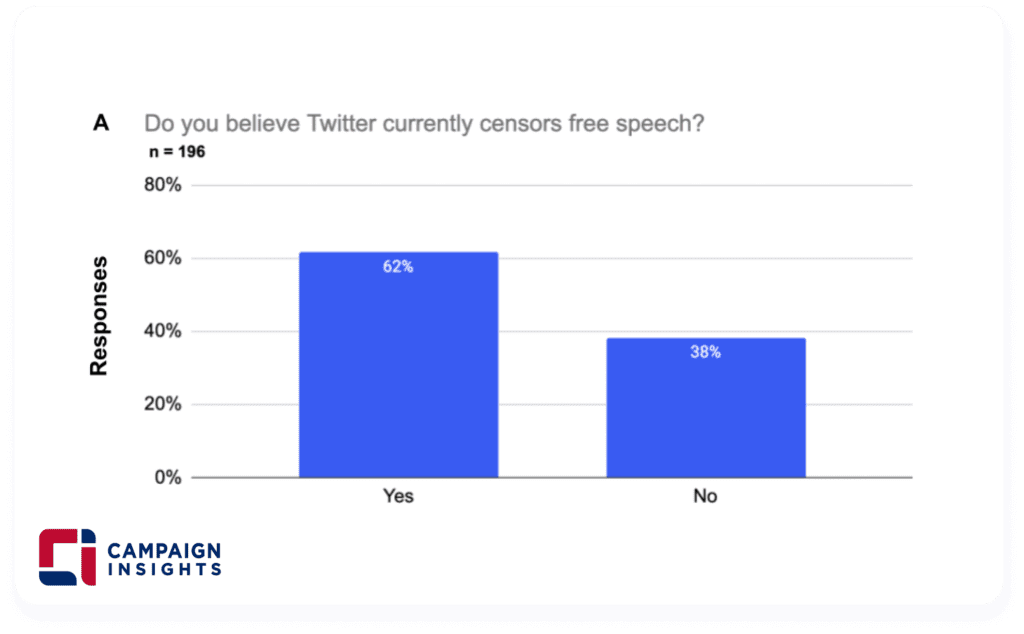
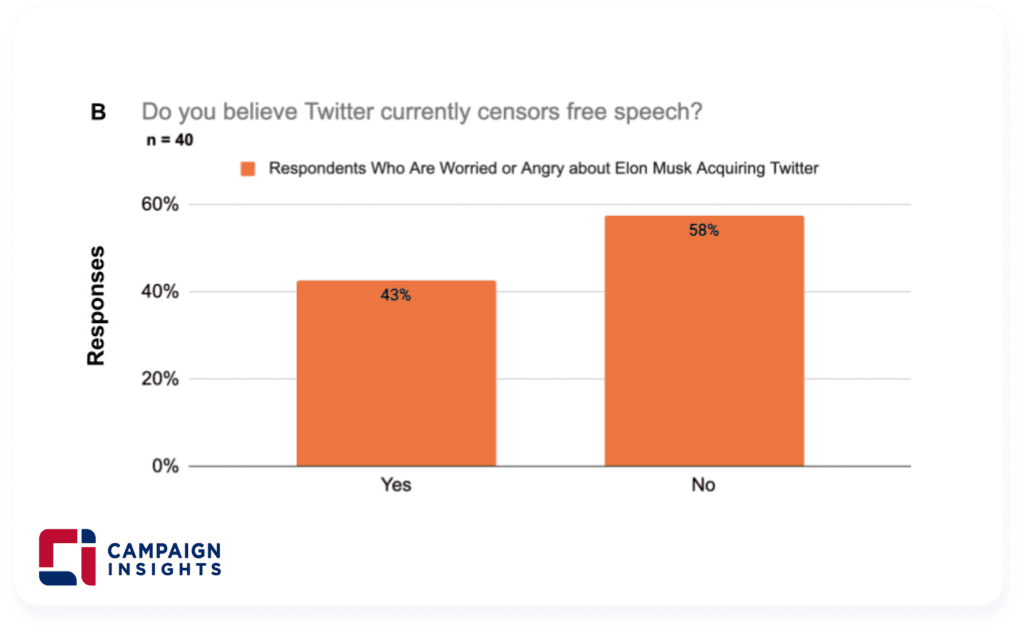
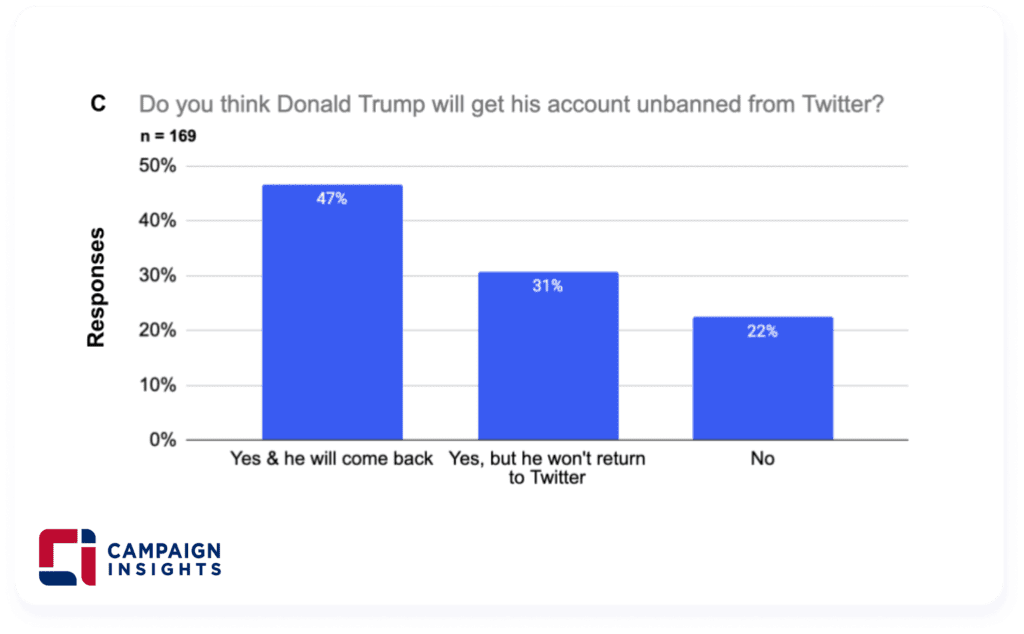
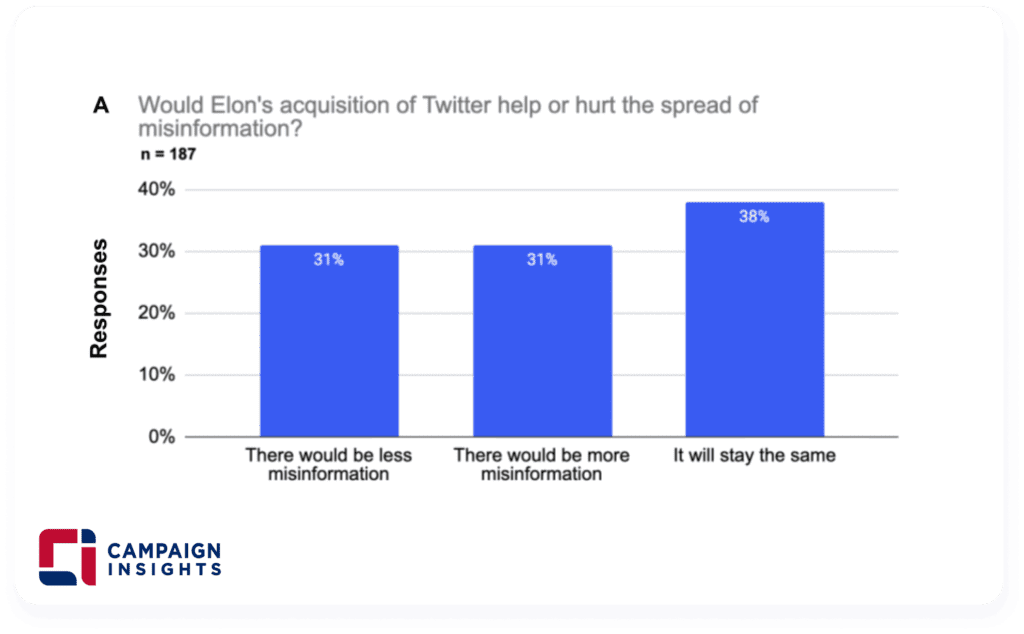
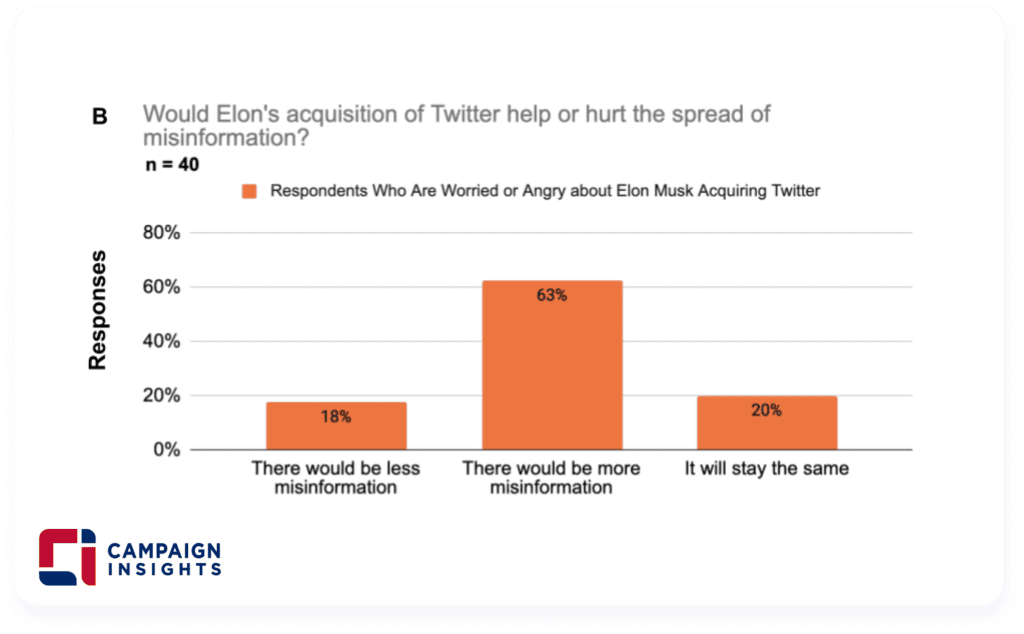
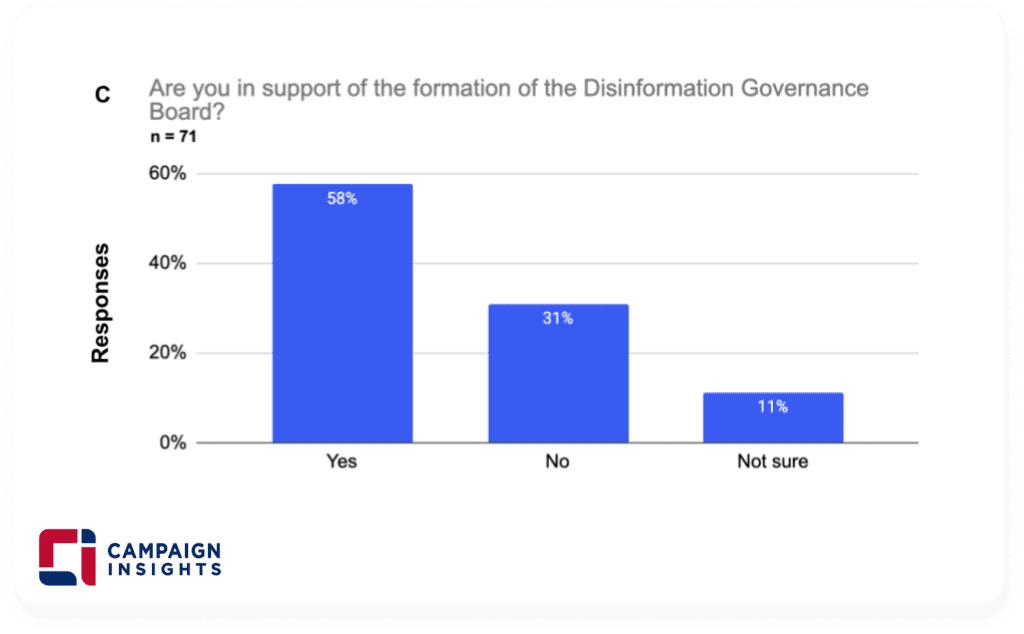
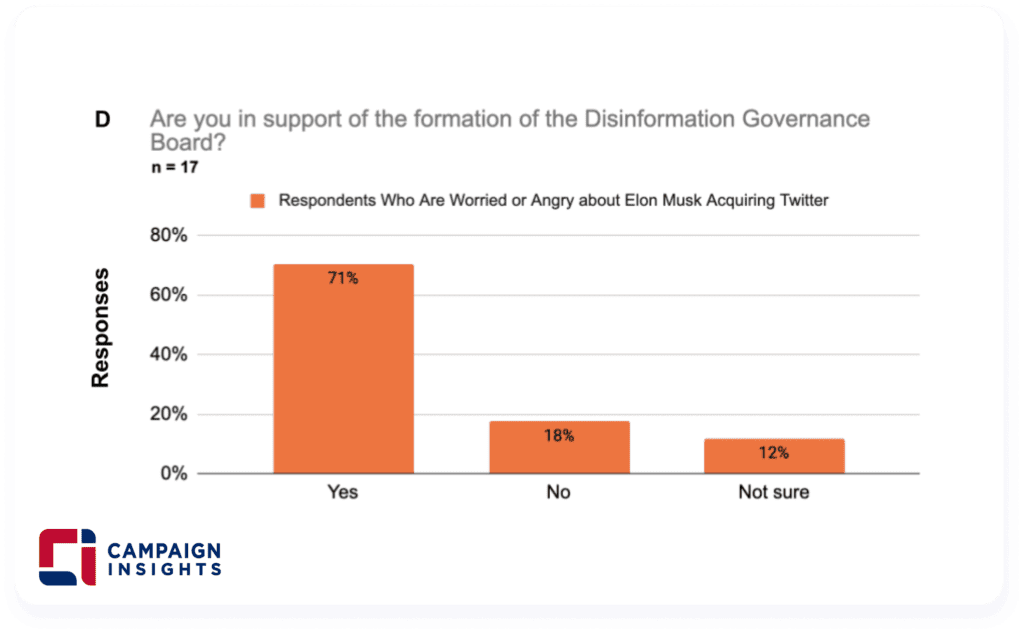
Discussion
This study shows that there has been a strong public reaction to Elon Musk’s acquisition of Twitter. The realization of the acquisition would seem to have little influence in convincing non-Twitter users to join the platform and holds limited sway over existing Twitter user’s emotions. However, for those who do feel angry or worried about the acquisition, their feelings are strong enough that they are considering a departure from the platform in the future. While this study does not confirm reasons why any of these respondents are worried or angry, one common reaction among people who have publicly expressed concern are fears that Musk’s purchase will move the United States closer to an oligarchy in which the ultra wealthy control all the major media and communication platforms. Some see Musk’s intent to purchase Twitter as a power move, rather than a move to defend free speech as Musk himself has intimated.
Despite Musk’s message regarding the protection of free speech, the majority of respondents who claim to be worried or angry about the acquisition do not feel that Twitter currently censors free speech – directly opposite of Musk’s opinion (Figure 3B). In addition, these respondents are more likely to think that with Elon Musk in charge, there will be more disinformation on the platform (Figure 4B). This may explain why they are also more likely than the average respondent to favor the implementation of a Disinformation Governance Board – which was proposed last month as part of the Department of Homeland Security (Figure 4D).
Musk pointed out in a tweet that Trump Media’s new social platform, Truth Social, was performing better than other popular apps in the iOS App Store. He also stated that Truth Social’s existence was purely because Twitter censored free speech – referring to the ban on President Trump’s Twitter account after the January 6th capitol riots. The debate lies in that Musk sees looser restrictions on Twitter as a solution that could keep everyone on one platform and stop a large population from being siloed into any particular feed or app like Truth Social, which in turn could further political polarization. On the other hand, those opposed to Musk’s takeover feel that disinformation on Twitter is a more important issue to deal with, that the company’s chosen restrictions are appropriate and just, and loosening them would perpetuate disinformation and potentially political polarization.
Campaign Insights’ Realtime Polling surveys differ from traditional online surveys in that the questions are shown to the user on web pages in place of an ad. Unlike Google Surveys, which block access to content until the questions are answered, Realtime Polling surveys are optional, thus ensuring that participants are responding voluntarily.
